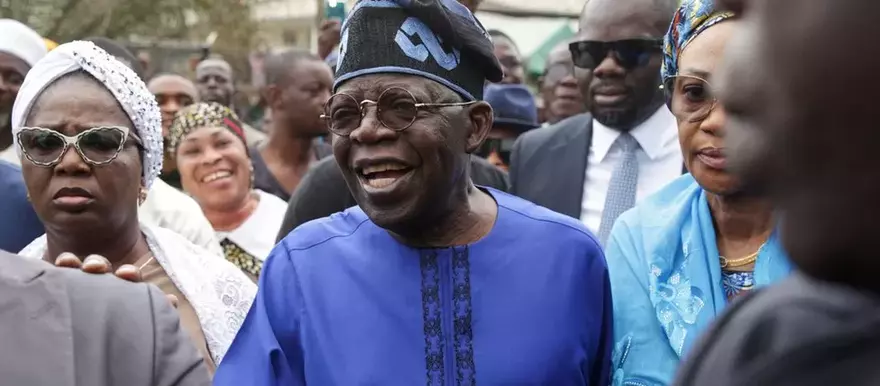The 70-year-old veteran politician got 37% of the vote, official results show, the BBC reports.
His main rival Atiku Abubakar polled 29%, and Labour’s Peter Obi 25%. Their parties had earlier dismissed the poll as a sham and demanded a rerun.
Mr. Tinubu urged them to accept the result, but Labour said it was taking legal action to annul his victory.
He is one of Nigeria’s richest politicians and based his campaign on his record of rebuilding the biggest city, Lagos when he was governor.
He was nevertheless defeated in the city by Mr. Obi, a relative newcomer who mobilized the support of many young people, especially in urban areas, shaking up the country’s two-party system.
Mr. Tinubu won most other states in his home region of the southwest, where he is known as a “political godfather” – for helping to put others into office.
He campaigned for the presidency under the slogan: “Emi lo kan”, which means “It’s my turn” in Yoruba.
In his acceptance speech, Mr. Tinubu called for reconciliation.
“I take this opportunity to appeal to my fellow contestants to let us team up together. It is the only nation we have. It is one country and we must build it together,” he said in a televised speech.
He added that they had the right to challenge the results in court but said that the lapses in the election “were relatively few in number and were immaterial to affect the outcome of this election”.
At a news conference later, Mr. Obi’s running-mate Yusuf Datti Baba-Ahmed urged his supporters to stay calm.
Labour’s lawyers were “putting the papers together” to challenge Mr. Tinubu’s victory in court, he added.
According to official results, voter turnout was 27%, one of the lowest since the end of military rule in 1999.
With about 8.8 million votes cast for Mr. Tinubu, he was the choice of less than 10% of the record 93 million Nigerians who registered to vote, helped by a divided opposition.
Mr. Obi won in Christian-dominated states and former strongholds of the main opposition Peoples’ Democratic Party in the south, while the PDP support shrank back into its northern heartlands.



